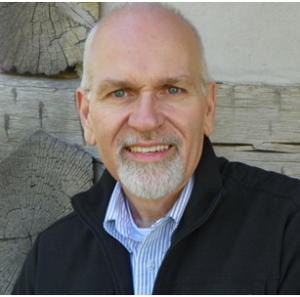 By Pastor Mike Spaulding
By Pastor Mike Spaulding
Two scenes from a movie I recently watched got me thinking about the ethics of naturalism. Hollywood veteran Sylvester Stallone starred in the movie “Cliffhanger” and the suspense in the plot enabled it to live up to its name.
For those unfamiliar with this movie Stallone plays a trained mountain rescuer who along with fellow rescuer, actor Michael Rooker, are tricked into aiding a fugitive gang who have managed to steal several hundred million dollars from the Federal Reserve but during their escape by airplane are forced to crash land in a desolate mountain range.
Playing a convincing role as the cold-hearted villain was actor John Lithgow. The two scenes that caught my attention happened within minutes of one another. The first scene showed one of Lithgow’s gang murdering a rescue helicopter pilot played by Ralph Waite. In shock and dismay over this cold-blooded act, Rooker screams, “he never hurt anyone.” In other words, Waite did not deserve to die. Lithgow without missing a beat, in an equally cold-blooded line only remarked, “how touching.”
The second scene moments later featured Lithgow murdering his female companion to gain leverage in a struggle with his co-conspirators to maintain control of the quickly evaporating escape plan. Just before Lithgow murders his female companion he asks her if she knows what the greatest virtue of love is. Before she can answer Lithgow answers for her by whispering in her ear, “sacrifice.” He then promptly murders her.
This is a violent movie but is candid in its portrayal of man’s dilemma ethically speaking. These two scenes clearly demonstrate the great paradox that man faces when trying to explain and live an ethical life apart from belief in God as the moral law giver. In the first scene Lithgow exhibits a naturalistic worldview, one completely in-line with a Darwinian evolutionary view. Being heartbroken over the death of a friend is nonsense to Lithgow and thus his “how touching” remark. Clearly implied is the rest of the statement that could be stated: “how touching and how utterly stupid.”
Contrasting that naturalistic ethic Lithgow espouses a different ethic in the second scene in justifying his murderous behavior. Where did he find any ground for love as sacrifice? These two scenes present ethics opposed to one another. Perhaps the writers of this movie script meant to mock the Christian ethic of God as moral law giver. I think a better explanation is that they unwitingly portrayed where mankind is left if God is indeed dead.
The truth is that naturalism cannot provide an ethical foundation for love, sacrifice, compassion or anything human beings are said to need to survive as communities and nations. Naturalistic ethics that speak of these qualities have smuggled Christian theistic ethics into their system without due recognition because of course that would betray their underlying beliefs. They cannot admit to what they claim does not exist. This makes naturalism’s ethics quite unnatural.
When God is declared dead there is only one place man can turn for the source of ethics – himself. This opens the floodgates for all forms of abuse and evil. The twentieth and twenty-first centuries provide testimony to the validity of this truth.
Friends, I encourage you to continue to stand firm in your faith and in your testimony. What your family, friends, and neighbors need today are answers to the myriad contradictions they encounter every day, not the least of which is the convoluted ethics of naturalism.
If you would like to know how you can trust Christ for your eternal salvation email Pastor Mike at drmichaelspaulding@gmail.com
© 2017 Mike Spaulding – All Rights Reserved
E-Mail: pastormike@woh.rr.com
Bio: Mike Spaulding was ordained to the ministry in 1998. Since then he has planted two Calvary Chapel churches – Calvary Christian Fellowship, St. Marys, Ohio, in 1998, and Calvary Chapel of Lima, Ohio, in 2005, where he currently serves as teaching pastor. Mike holds a B.A. in Organizational Management, a Masters Degree in Theological Studies, and a Ph.D. in apologetics.





